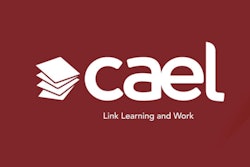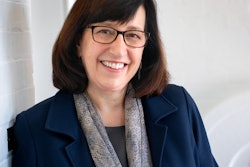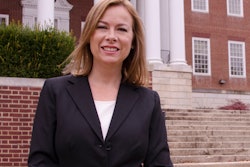College students often rely on federal work-study positions and other jobs on and off campus to make ends meet. However, with campuses shut down amid the COVID-19 pandemic, many students have had to look for other sources of income to pay bills.
 Photo credit: Wes Hicks
Photo credit: Wes Hicks“Across the country, we are seeing many colleges and universities make quick decisions on learning environments, budgets and access to university services that have trickle-down effects to student employment opportunities,” said Bridget Schwartz, president of the National Student Employment Association (NSEA), via email. “Offices that manage student employment are also contending with shifting regulation flexibilities and guidelines and job availability that is not unlike that of the overall job market.”
Zyriah Robinson, a recent graduate of the State University of New York at New Paltz (SUNY New Paltz), said she was very concerned about losing her student activities manager (SAM) position. Her role included monitoring and providing tech support for the student union building — a place to eat, socialize, hold club meetings and host events. But when COVID-19 first hit, the school shut down for two weeks.
Meanwhile, Robinson pondered going back to work. She was considered the “Senior SAM,” the one with the most experience due to her tenure. And though she felt responsible, her “health came first,” she explained, as did the health of her family.
 Zyriah Robinson
Zyriah RobinsonThus, when her supervisor asked the group of seven SAMs whether they would come back to work if the school reopened, they all opted out of their contracts. “We didn’t know what COVID was at the time. We didn’t know how it would affect us,” Robinson said.
During the height of the pandemic in upstate New York, Robinson and her twin sister moved back home — this time to their cousins’ place, a 2-bedroom apartment in the Bronx. During quarantine, they had to juggle remote coursework and babysitting their 5-year-old cousin who was in pre-K at that time. The child’s parents worked in health care, and the circumstances were challenging given five people were living in the apartment when Robinson and her sister moved in, she said.
Therefore, “it is important that schools and the (U.S.) Department of Education acknowledge the importance of continuing to provide support, especially to our underprivileged students,” Schwartz said.
“One of the things we have done to mitigate the loss of employment income is to use discretionary student assistance funds dedicated to helping students stay in school and to manage crisis situations,” said L. David Eaton, vice president for enrollment at SUNY New Paltz, in a statement. “These funds are disbursed through the Student Financial Services Office and the Student Affairs Division. Additionally, work-study funding has not been reduced. Students with work-study awards may still find jobs remotely or on-campus.”
To compensate for the loss of income from her campus job, Robinson received money from the CARES Act, a Higher Education Emergency Relief Fund (HEERF) grant in the form of a disbursement check for $1,750.00. At the same time, SUNY New Paltz gave students partial credit for remaining balances on room and board fees, course fees and other school-related fees. However, Robinson didn’t qualify for a partial refund of her room fee because that was originally covered through her job as a SAM.
With no other way to make income through the school, Robinson said that she heavily relied on her older brother in California to help with rent and groceries until she found a job in June.
Athira Mannancheril recently earned a master’s degree in biotechnology from Johns Hopkins University in Maryland and is still on the job hunt after losing her position as a part-time scribe with Scribe for America, the nation’s largest medical scribe company.
In April, when she asked to be transferred closer to her apartment and earn more money, COVID-19 became more of a concern. Therefore, her job was put on hold.
“I was planning to use that income to pay off whatever credit card debt I owed and save up for application fees for medical school,” she said.
She continued to follow up on the status of her transfer throughout the next couple of weeks and months, but the answer remained: the hospital was limiting the number of people allowed to enter the building, thus halting the scribe program. Since then, she has moved back home to Chicago, and now there are no current openings for scribes in her immediate area.
“You’re not really earning your own money, you kind of have to rely on your parents for extra support and stuff — and they’re also going through their own stuff,” Mannancheril said.
“It was stressful, but at the end of the day, I was luckier than a lot of the other kids,” and privileged, she added. At the same time, “I was honestly debating if I should pick up any another job, but because coronavirus was so fresh, I honestly didn’t feel safe. The only other jobs available at that point were working at Target or mandatory places that were open.”
As a young adult, she didn’t want to ask for money, but she had no choice because she had to pay rent as well.
“Interdepartmental collaboration is key to provide as many resources to students as possible,” Schwartz said. For example, schools and programs should “look for ways to work with the career services, advising, student affairs, and financial aid offices to identify other ways to support students — such as using university funds to help students with unpaid internships or identifying other financial aid that may be accessible to students if federal work-study positions are not available.”















